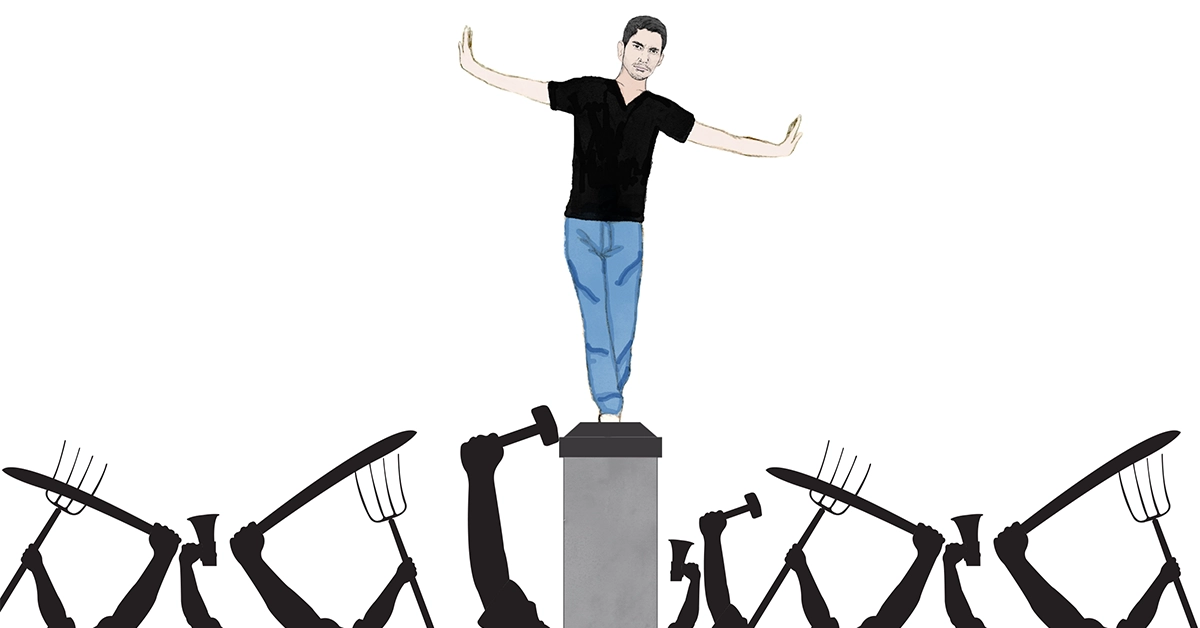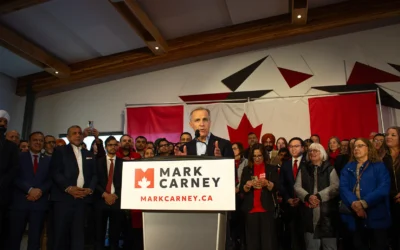Have you ever been called “bourgeoisie scum” by your socialist friends for placing communism in an even slightly negative light? Ever been sitting with some of your more conservative family members, only to end up being shouted at for saying you don’t hate “Justine Turdeau”?
What would your answer be if somebody were to raise the question to you, “What’s the one thing people on both sides of an issue, no matter how divisive the issue is, have in common?” Mine would be that neither side has any respect for the person who doesn’t take a side.
I am one of those people.
I am a true-blue fence-sitter.
I like to think the distaste for moderates, who will agree with one group in one case and yet take the side of the opposition in another, comes from a perception of those of us who skirt both positions as fickle and shiftless.
Those who hold especially strong political or religious convictions view the person who chooses to stand as a moderate as arguably worse than their rivals on the other side of the fence. That’s because we’re the ones who are seen as not having picked a side, but I disagree with that perception. We pick our sides, but we do it extremely carefully.
I’m going to do my best to explain why I personally never like to rigidly stick to one ideology. It isn’t cowardice or laziness, as many I’ve talked to in the past seem to think. First, a little bit of backstory.
As a young boy of 12, I was a staunch liberal, and one of those obnoxious little kids who would condemn anybody as soon as I discovered his or her ideologies differed from mine in any way whatsoever. Mean, old, cigar-chomping men in power suits were all that came to mind when I thought of the evils of capitalism.
Then, I started listening instead of taking as gospel all of the information given to me by trusted people. Those who sat on the right side of the political spectrum weren’t actually nefarious devils, poised in preparation to hurt the poor and the hungry with every chance they could get.
It was an unnerving time because looking at those who disagree with yourself as monsters is a lot easier than trying to understand the reasoning behind their decisions. Granted, that shift in outlook didn’t signify for me a complete and total overhaul of political viewpoint, as I still see myself as a left-winger.
But in most cases, a centrist is more of what I am. I’m hardly alone in taking this stance, either. There are a lot of people who may seem unwilling to choose a side, but if my experience and those of people with whom I’ve talked are anything to go by, all we’re doing is trying to make the smartest and most well-thought out decision we can.
So, of course, over the years, I’ve painted a nice big target on my back for those dead set in their opinions on an issue to take issue against. But I wasn’t always on the fence when it came to making choices about what was worth supporting or denigrating.
The only difference now is that instead of sanctimoniously hissing and biting at ideas that don’t align with my own, I try my best to put my perceptions of right and wrong on the backburner and see where the opposing stance is coming from. This process takes a lot more time than the former, because following one’s emotions leads to quicker outcomes. And therein lies the rub.
I’m sure we’ve all been in one of those experiences where we’re sitting with a bunch of friends who generally have similar thoughts on social, religious, or economic issues. Then, all of a sudden things get real and you’re discussing a very serious, divisive subject.
When Notley was first elected as Alberta’s premier, my friends all seemed to be in agreement over where everybody should stand on the minimum wage increase. None of them were thrilled about the idea. In the course of their discussion, I began to notice they were not addressing the points of the opposite side at all. So, I made the mistake of bringing them up myself, if for no reason other than a curiosity about how they’d respond to the argument. That’s the exact moment I managed to isolate myself.
Instead of seeing the devil’s advocate as an innocent source of “Yes, but…” those standing for the original argument took this interjection as a betrayal — a snide little knife slid between the collective ribcage of the group. In that instance, where seconds ago I was part of a lively assembly of pals, I had now become that jerk with the big mouth.
Obviously, not all situations of this kind end up with your peers resenting you. In many cases, I’ve had friends respond calmly and coolly without getting up in arms at being disagreed with. But I’m willing to wager a fair amount that for all my fellow fence-sitters out there who’ve tried to see things as impartially as possible, there’s been some kind of hell to pay.
So there you have it: a small window into the mind of the irresolute. When we choose not to outright condemn or applaud a person, situation, political maneuver, or whatever else is on the collective agenda, us fence-sitters aren’t doing so out of apathy or cowardice.
From my experience, most of us in the slow-to-decide camp are just trying to make the absolute best choice. Ultimately, isn’t it better to take one’s time and look at something from all angles, rather than rush in emotions-first and pay the price later on?
Actually, I’m not quite sure about that. Let me get back to you.
Cover illustration by Alley MacLean.





0 Comments